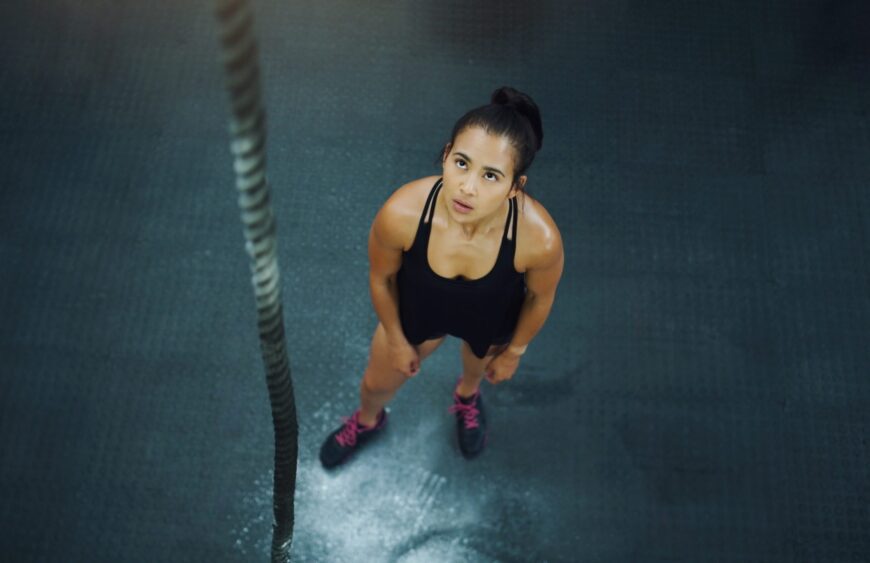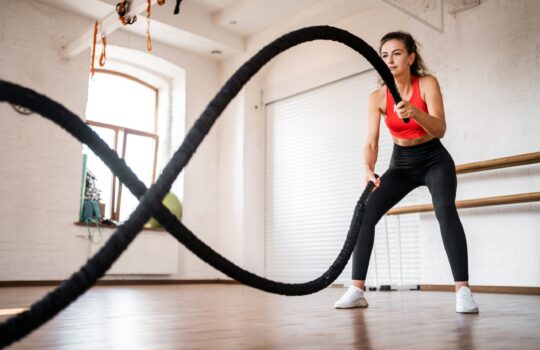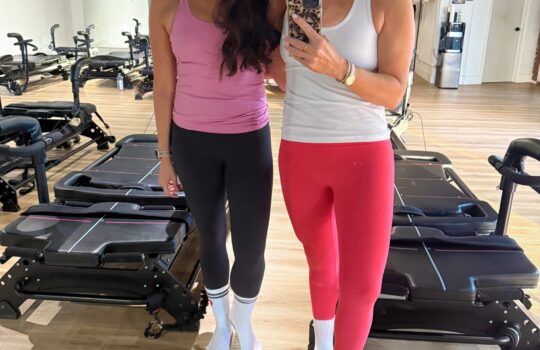Think Like an Athlete: The Mindset Anyone Can Use to Reach Their Goals


I stopped being an athlete a few years ago, and it got me thinking about what I miss most about competing at a high level in CrossFit.
Sure, part of me misses the adrenaline rush of running out onto the competition floor, the pride of standing on the podium, and the great vibe and support of the community.
But one of the best parts of it? I still carry that with me.
When I walked into that CrossFit gym at 27, I thought I was just looking for a fun way to stay fit. I had no idea it would be the start of a journey that would teach me more life lessons than I ever imagined—lessons that would serve me all my life.
Because great athletes—and successful people in general—have a certain mindset that sets them apart. And I believe anyone can learn to cultivate these powerful ways of thinking to make anything they want to achieve in life feel easier to reach. Don’t worry—you don’t need to set foot on a competition floor to develop it.
Let’s look at the two most powerful mental tools competitive athletics helped me grow—and how you can start practicing them today.
Where Does an Athlete’s Mindset Come From?
Have you ever wondered what makes some people seem unstoppable in whatever they do? Are they just different—born with “it”?
Most of the time, the difference isn’t talent, genetics, or luck.
It’s a way of thinking—one that can be learned, practiced, and mastered by anyone willing to do the work.
Let me be clear: competing didn’t make me mentally tough because I was special. It made me mentally tough because it forced me to practice two specific skills over and over until they became second nature.
These might sound simple, but they’re game-changers. And research backs it up—studies consistently show that people who can tolerate discomfort and maintain consistency, regardless of mood, achieve significantly more in both fitness and life.
Skill #1: Embracing Discomfort as Your Friend
In training, discomfort was constant: the burn in your lungs, the voice in your head screaming to quit, the weight that felt impossibly heavy.
Training and competing taught me that discomfort isn’t the enemy—it’s information. It’s growth happening in real time. And it’s temporary. On the other side of it stands a stronger version of you.
In training, this looked like:
-
Staying in workouts when I wanted to stop or slow down
-
Pushing through mental barriers when my body wanted to quit
-
Doing a workout even if it was hot, cold, or raining
In life, this translates to:
-
Having difficult conversations instead of avoiding them
-
Daring to make mistakes or admit you don’t have all the answers
-
Building businesses, relationships, or skills that require stepping outside your comfort zone
-
Trying something new even if it will be messy and imperfect
How to start building this skill:
✅ Start small: Choose one small daily discomfort—a quick cold shower, a few extra reps when tired, or delaying a distraction (like social media) until after you’ve completed a task.
✅ Notice your thoughts: When discomfort hits, observe your inner dialogue. Can you make it more supportive?
✅ Reframe the story: Instead of “this sucks,” try “this is making me stronger.”
✅ Track your wins: Keep a simple log of times you chose discomfort over comfort—you’ll be amazed how quickly it builds.
Skill #2: Showing Up Regardless of How You Feel
This one changed everything for me.
In competition, you don’t get to perform only when you feel great. You show up tired, stressed, unmotivated, or dealing with life outside the gym. Perfect conditions don’t exist.
I had to learn that feelings are not facts. They’re temporary, and they can change quickly. Relying on motivation meant I’d miss too many days. That wouldn’t have gotten me many medals.
The mindset I cultivated was simple: follow the plan, not your feelings.
In training, this meant:
-
Following my program even on “meh” days
-
Not letting one bad session derail the week
-
Understanding that consistency beats motivation every time
In life, this looks like:
-
Chipping away at your goals even when you’re uninspired
-
Maintaining healthy habits despite a bad day
-
Building trust with yourself that you’ll do what you say you’ll do
How to develop this skill:
✅ Make your plan when you feel good—and stick to it no matter what
✅ Start with tiny commitments: something so small you can do it even on your worst day
✅ Notice patterns: If motivation is always low, ask why (this is where a coach can help)
✅ Celebrate showing up: Give yourself credit for consistency, not just results
Why This Matters Beyond Sports
Life doesn’t care how you feel on any given day. Opportunities won’t rearrange themselves around your energy levels.
But when you can handle discomfort and show up consistently, you become someone who can achieve anything—not because you’re superhuman, but because you’ve practiced two fundamental skills that make success possible.
From my competitive years, what I’m most grateful for isn’t the medals, the recognition, or even the physical strength.
It’s the unshakeable knowledge that I can handle whatever life throws at me. That I can pursue any goal, weather any storm, and build any life I want—because I’ve learned to work with my mind instead of against it.
The best part? You can start building this mindset today. No gym membership required. No competition necessary.
Just a willingness to embrace discomfort and show up for yourself, one day at a time.
Because that’s how all great things begin. Wouldn’t you agree? —Marlene
Trending Products






